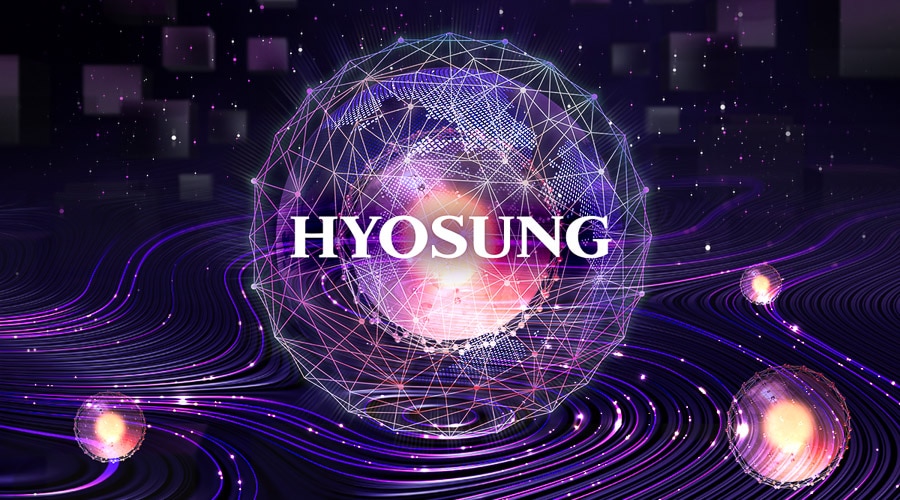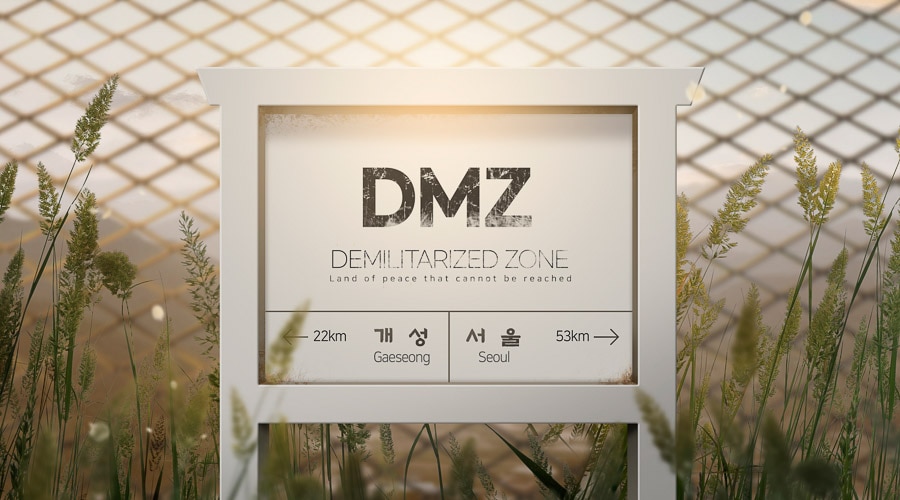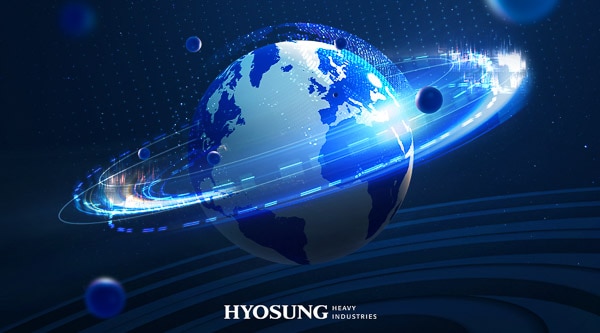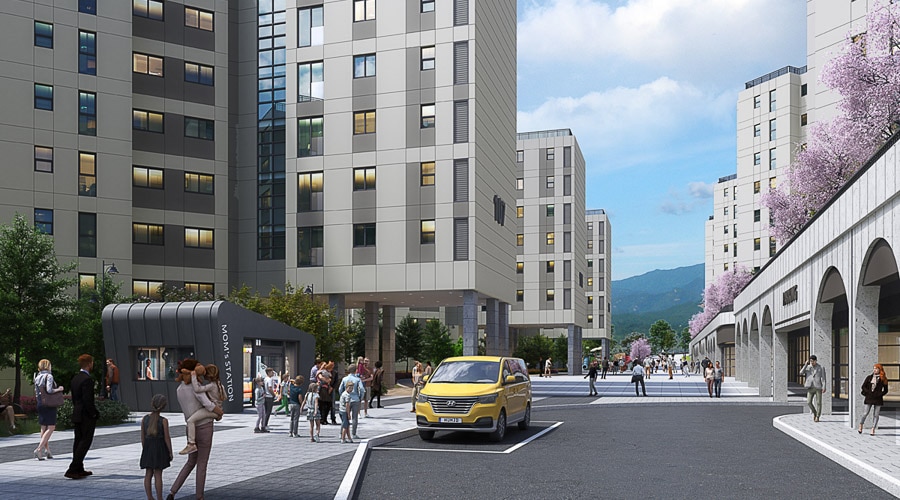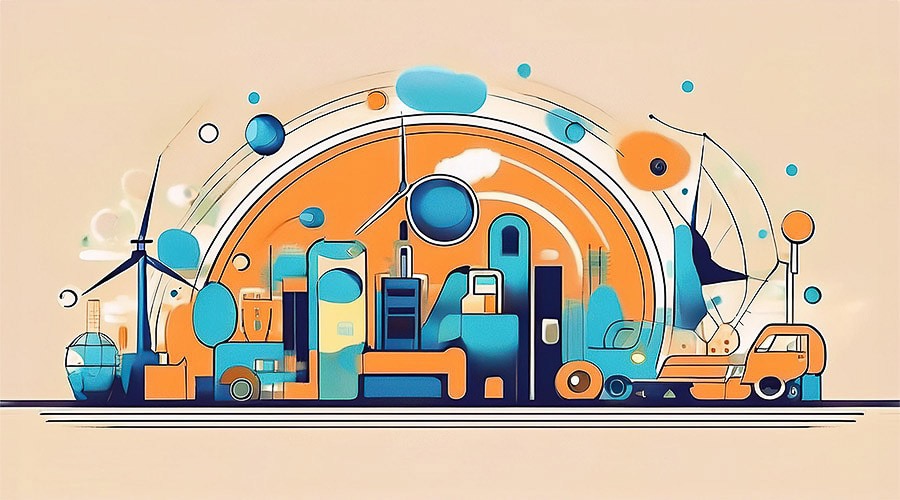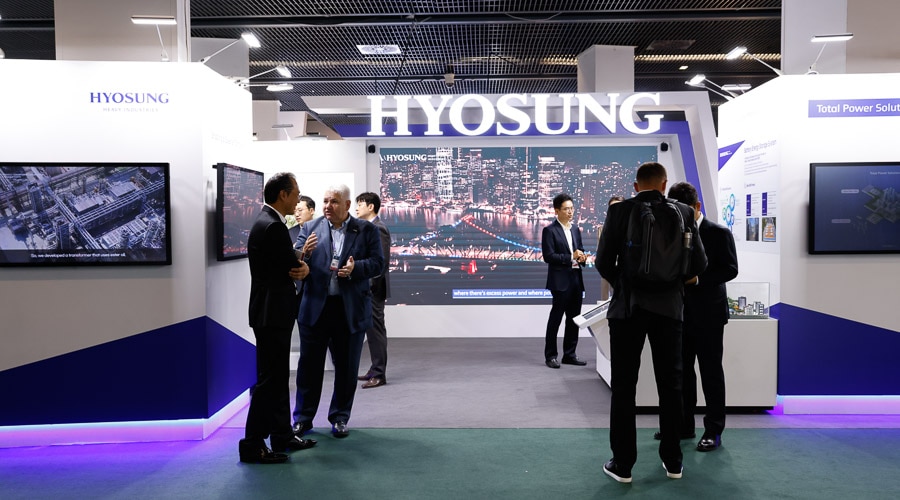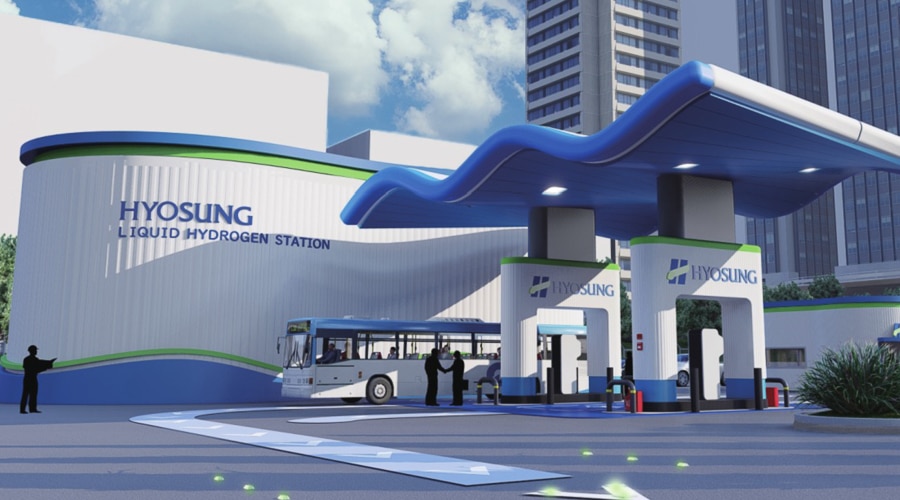Contenido de contenido
In a world intricately connected by technology and capital, global corporations wield significant influence over humanity's future. Companies that solely pursue exclusive profits are naturally phased out, making mutually beneficial growth essential for sustainable development. This global trend reflected in HYOSUNG's embrace of a paradigm of responsible management that integrates social and economic values.
From January 15 to 19, the 2024 World Economic Forum (WEF) was held in Davos, Switzerland, with the theme "Rebuilding Trust." This forum provided a forum for global corporations to discuss shared challenges and explore various dialogues. The event convened over 2,800 business leaders, including more than 60 heads of state and government officials, as well as renowned academics and CEOs. The 2024 Davos Forum focused on pressing global issues including climate change, economic instability, and security crises, seeking sustainable solutions through collaborative discussion. At this pivotal event, HYOSUNG actively engaged with business leaders and government officials from around the world, demonstrating its commitment to addressing critical global challenges and reinforcing its leadership in the materials sector.
HYOSUNG solidifies Its position as a global leader in materials sector
The Davos Forum, which was established in 1971 as a non-profit foundation at the initiative of Klaus Schwab, a professor at Harvard University, is an international private meeting where prominent business leaders, economists, journalists, and politicians gather to discuss global economic issues and seek international action plans. The Davos Forum is known as the "World Economic Olympics," the forum is a highly influential UN non-governmental advisory body that significantly impacts organizations like the World Trade Organization (WTO) and meetings such as the G7.
The 2024 Davos Forum served as a forum for global leaders to communicate and share ideas, while also presenting an opportunity for HYOSUNG to explore new business ventures in the materials sector. At this forum, HYOSUNG led in-depth discussions on rebuilding global supply chains.
During a dialogue session with business leaders, which included South Korean Prime Minister Han Duck-soo, HYOSUNG utilized its key product, carbon fiber, to illustrate the current supply chain challenges. They stated, "Supply chain issues have emerged as a critical concern from the beginning of the year due to global geopolitical situations," and emphasized that they, “as a company leading the material production and export, will respond to current supply chain risks by diversifying their supply chains.” HYOSUNG additionally recommended that the government to “swiftly establish a supply chain committee with the objective of promptly identifying and addressing corporate challenges through collaborative efforts.” The session attracted significant attention from numerous global CEOs, who expressed an interest in partnering with South Korea.
HYOSUNG’s three future strategies announced at the Davos Forum
At the 2024 Davos Forum, HYOSUNG presented a detailed account of its strategies for diversifying its supply chain. The presentation focused on three key areas: The company's strategies include : expanding investments in Vietnam, establishing a next-generation production base in India, and fostering the biofiber industry as a new growth driver.
01 | Establishing a ‘Global Hub’ through expanded investments in Vietnam
At the Davos Forum, HYOSUNG participated in a panel discussion on "The Potential and Investment Opportunities in Vietnam's Financial Market," chaired by Vietnamese Prime Minister Pham Minh Chinh. HYOSUNG has indicated its intention to expand its investments in Vietnam by approximately USD 2 billion (equivalent to KRW 2.7 trillion).
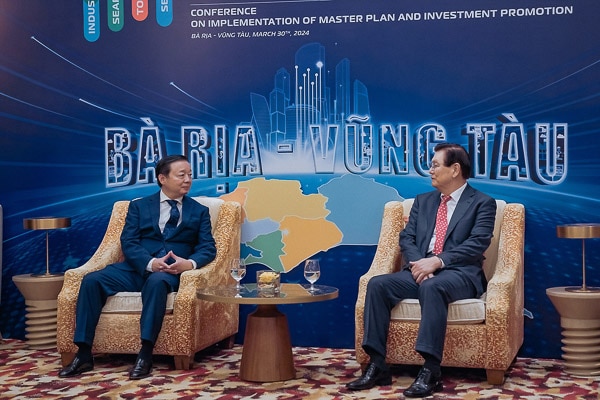
▲ Deputy Prime Minister Trần Hồng Hà (left) and HYOSUNG Vice Chairman Lee Sang-woon (right) at the investment approval ceremony in Bà Rịa–Vũng Tàu Province, Vietnam on March 30, 2024.
HYOSUNG has consistently demonstrated its dedication to Vietnam, perceiving the country as a pivotal component of its future outlook over the next century. Since establishing its Vietnamese subsidiary in the vicinity of Đồng Nai Province in 2007, HYOSUNG has invested a total of USD 3.5 billion (approximately 4.7 trillion KRW), operating eight production facilities in Đồng Nai and Bà Rịa–Vũng Tàu. These facilities produce a range of key materials, including spandex, tire cords, and polypropylene (PP), employing approximately 9,000 workers. Currently, HYOSUNG is investing 53.3 billion Korean won to construct a carbon fiber plant, with completion scheduled for the first half of 2025.
In 2023, HYOSUNG initiated the "Proud of Hyosung" brand campaign in Vietnam, which not only highlighted economic ties but also socio-cultural exchanges and cooperation. The campaign demonstrated HYOSUNG’s dedication to sustainable growth and its commitment to the local community, thereby reinforcing the social value of its presence in Vietnam.
02 | Establishing India as the 'Next-Generation Production Base' for tire cords
Additionally, HYOSUNG has announced its intention to expand its production base for tire cord to India, following the establishment of similar facilities in China and Vietnam. Tire cords are a crucial reinforcement material that maintains the shape and enhances the durability of tires. Tire cords represent one of HYOSUNG’s "Big Three" materials, alongside spandex and polypropylene, produced by Hyosung TNC, Hyosung Chemical, and Hyosung Advanced Materials.
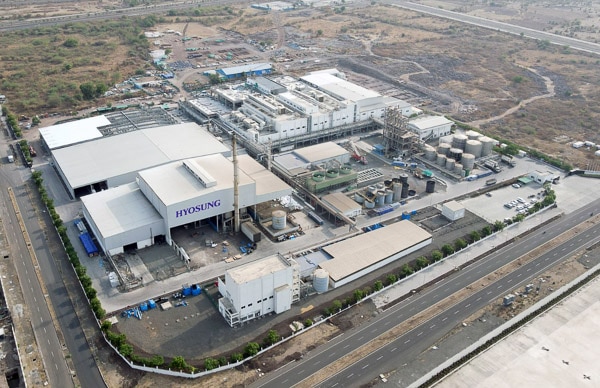
▲ A view of HYOSUNG’s plant in India
Hyosung Advanced Materials is a leading global player in the polyester (PET) tire cord market, with a 50% market share and a position at the top of the market for over two decades.
However, HYOSUNG is not resting on its laurels and continues to invest in and develop eco-friendly products to coexist with the natural environment. One significant achievement is the development and commercialization of recycled polyester (Recycled-PET) tire cords, which reduce greenhouse gas emissions by 44% compared to conventional polyester tire cords. This innovation has been in development since 2020.
Furthermore, HYOSUNG has successfully developed bio yarns derived from plant-based materials and is producing 'Lyocell Tire Cords' made from wood-derived materials. These Lyocell Tire Cords are designed to replace rayon tire cords, used as reinforcement in high-speed tires, and are attracting attention from global tire manufacturers focused on carbon reduction.
03 | Emerging core growth driver: bio fibers
During the bio session, HYOSUNG underscored bio fibers as a pivotal growth driver, engaging industry stakeholders in discussions aimed at advancing bio fiber technologies. It is particularly noteworthy that Hyosung TNC has achieved significant milestones in the development of Bio-Based spandex, a process which involves the conversion of core raw materials (Bio BDO) extracted from natural sources such as corn into Bio-Based Spandex. This accomplishment has earned them prestigious global eco-certifications, including the Eco Product Mark, affirming their commitment to bio fiber research.
Hyosung TNC has also introduced 'regen,' which are produced from recycled materials such as discarded PET bottles. During this session, HYOSUNG emphasized the importance of transitioning raw materials used in spandex and various fibers to eco-friendly alternatives. They stated that they are “planning to increase investments in developing sustainable bio fibers,” highlighting their dedication to sustainable innovation in the textile industry.
Embracing global connectivity: HYOSUNG’s ‘Vision’ at the 2024 Davos forum
The 2024 Davos Forum provided a forum amidst global waves of change in politics, economics, and society, enabling participants to grasp the rapidly evolving realities and explore opportunities to formulate sustainable future strategies for businesses. With over 800 global CEOs in attendance, HYOSUNG presented profound insights into building a robust material supply chain, there by solidifying its position as a global leader in materials. This initiative not only reinforced reputation as a leading entity in the materials sector but also attracted investment inquiries from governments and businesses across Asia, including India.
During the forum, HYOSUNG engaged in meaningful dialogues with leading global companies, showcasing its vision for the future. HYOSUNG’s commitment to sustainable management, rooted in its core principles and mission, will undoubtedly continue to serve as a guiding force in its unwavering pursuit of strengthening its position as a leader in the global market for materials.

